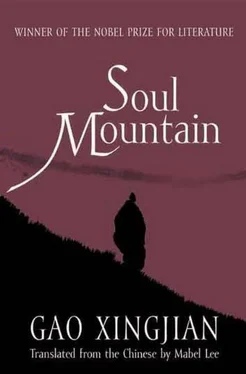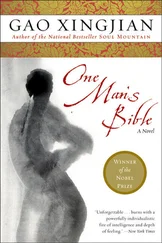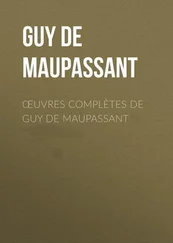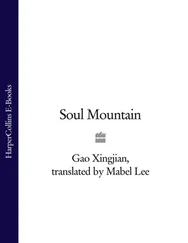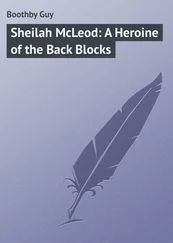or it can be read as: history is shrouds for wrapping corpses
or taking it further it can be read as: history is a drug to induce sweating
or taking it further it can also be read as: history is ghosts banging on walls
and in the same way it can be read as: history is antiques
and even: history is rational thinking
or even: history is experience
and even: history is proof
and even: history is a dish of scattered pearls
and even: history is a sequence of cause and effect
or else: history is analogy
or: history is a state of mind
and furthermore: history is history
and: history is absolutely nothing
even: history is sad sighs
Oh history oh history oh history oh history
Actually history can be read any way and this is a major discovery!
“This isn’t a novel!”
“Then what is it?” he asks.
“A novel must have a complete story.”
He says he has told many stories, some with endings and others without.
“They’re all fragments without any sequence, the author doesn’t know how to organize connected episodes.”
“Then may I ask how a novel is supposed to be organized?”
“You must first foreshadow, build to a climax, then have a conclusion. That’s basic common knowledge for writing fiction.”
He asks if fiction can be written without conforming to the method which is common knowledge. It would just be like a story, with parts told from beginning to end and parts from end to beginning, parts with a beginning and no ending and others which are only conclusions or fragments which aren’t followed up, parts which are developed but aren’t completed or which can’t be completed or which can be left out or which don’t need to be told any further or about which there’s nothing more to say. And all of these would also be considered stories.
“No matter how you tell a story, there must be a protagonist. In a long work of fiction there must be several important characters, but this work of yours…?”
“But surely the I, you, she and he in the book are characters?” he asks.
“These are just different pronouns to change the point of view of the narrative. This can’t replace the portrayal of characters. These pronouns of yours, even if they are characters, don’t have clear images they’re hardly described at all.”
He says he isn’t painting portraits.
“Right, fiction isn’t painting, it is art in language. Do you really think the petulant exchanges between these pronouns can replace the creation of the personalities of the characters?”
He says he doesn’t want to create the personalities of the characters, and what’s more he doesn’t know if he himself has a personality.
“Why are you writing fiction if you don’t even understand what fiction is?”
He then asks politely for a definition of fiction.
The critic is cowed and snarls, “This is modernist, it’s imitating the West but falling short.”
He says then it’s Eastern.
“Yours is much worse than Eastern! You’ve slapped together travel notes, moralistic ramblings, feelings, notes, jottings, untheoretical discussions, unfable-like fables, copied out some folk songs, added some legend-like nonsense of your own invention, and are calling it fiction!”
He says the gazetteers of the Warring States period, the records of humans and strange events of the Former and Later Han, the Wei and Jin, and the Southern and Northern Dynasties, the chuanqi romances of the Tang Dynasty, the prompt books of the Song Dynasty, the episodic novels and belles-lettres of the Ming and Qing Dynasties, as well as the writings through the ages on geography and the natural sciences, street talk, morality tales, and miscellaneous records of strange events, are all acknowledged as fiction. But none of these have ever had any fixed models.
“Are you from the searching-for-roots school?”
He hastens to say you sir have stuck such labels on him. However, the fiction he writes is simply because he can’t bear the loneliness, he writes to amuse himself. He didn’t expect to fall into the quagmire of the literary world and at present he is trying to pull himself out. He didn’t write these books in order to eat, fiction for him is a luxury beyond earning money and making a livelihood.
“You’re a nihilist!”
He says he actually has no ideology but does have a small amount of nihilism in him, however nihilism isn’t the equivalent of absolute nothingness. It’s just like in the book where you is the reflection of I and he is the back of you, the shadow of a shadow. Although there’s no face it still counts as a pronoun.
The critic shrugs his shoulders and departs.
He feels confused and uncertain about what it is that is critical in fiction. Is it the narrative? Or is it the mode of narration? Or is it not the mode of narration but the attitude of the narration? Or is it not the attitude but the affirmation of an attitude? Or is it not the affirmation of an attitude but the affirmation of the starting point of an attitude? Or is it not the starting point but the self which is the starting point? Or is it not the self but perception and awareness of the self? Or is it not the perception and awareness of the self but the process of that perception and awareness? Or is it not the process but the action itself? Or is it not the action itself but the possibility of the action? Or is it not the possibility but the choice of action? Or is it not whether there is a choice but whether there is the necessity of a choice? Or is it not in the necessity but in the language? Or is it not in the language but whether the language is interesting? Nevertheless he is intrigued with using language to talk about women about men about love about sex about life about death about the ecstasy and agony of the soul and flesh about people’s solicitousness for people and politics about people evading politics about the inability to evade reality about unreal imagination about what is more real about the denial of utilitarian goals is not the same as an affirmation of it about the illogicality of logic about rational reflection greatly surpassing science in the dispute between content and form about meaningful images and meaningless content about the definition of meaning about everyone wanting to be God about the worship of idols by atheists about self worship being dubbed philosophy about self love about indifference to sex transforming into megalomania about schizophrenia about sitting in Chan contemplation about sitting not in Chan contemplation about meditation about the Way of nurturing the body is not the Way about effability or ineffability but the absolute necessity for the effability of the Way about fashion about revolt against vulgarity is a mighty smash with a racquet about a fatal blow with a club and Buddhist enlightenment about children must not be taught about those who teach first being taught about drinking a bellyful of ink about going black from being close to ink about what is bad about being black about good people about bad people about bad people are not people about humans by nature are more ferocious than wolves about the most wicked are other people and Hell in fact is in one’s own mind about bringing anxieties upon oneself about Nirvana about completion about completion is nothing completed about what is right about what is wrong about the creation of grammatical structures about not yet saying something is not the same as not saying anything about talk is useless in functional discourse about no-one is the winner in battles between men and women about moving pieces backwards and forwards in a game of chess curbs the emotions which are the basis of human nature about human beings need to eat about starving to death is a trifling affair whereas loss of integrity is a major event but that it is impossible to arbitrate this as truth about the fallibility of experience which is only a crutch about falling if one has to fall about revolutionary fiction which smashes superstitious belief in literature about a revolution in fiction about revolutionizing fiction.
Читать дальше
Конец ознакомительного отрывка
Купить книгу
